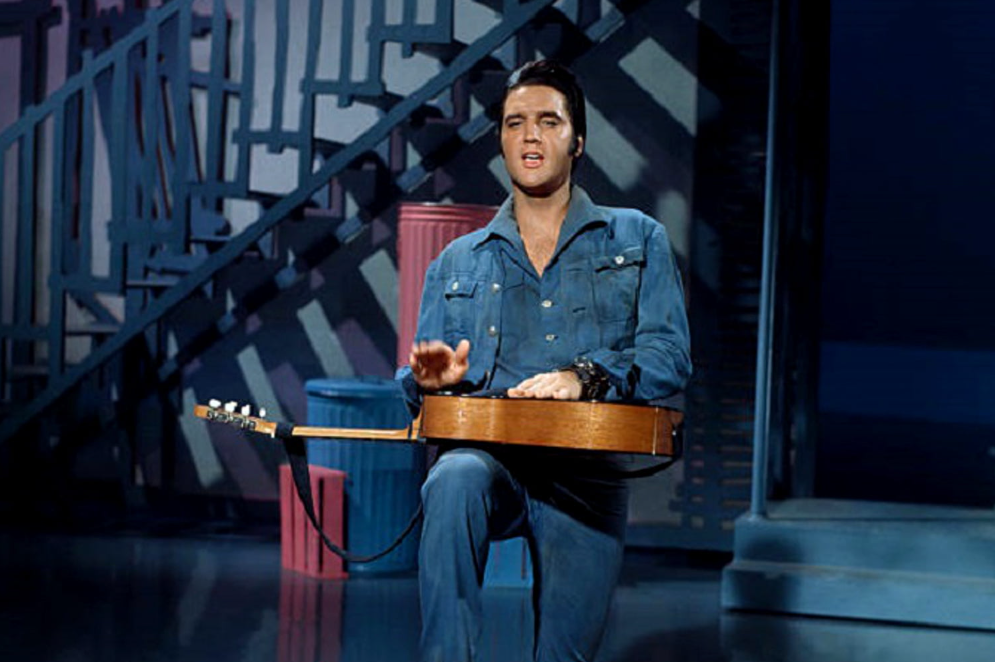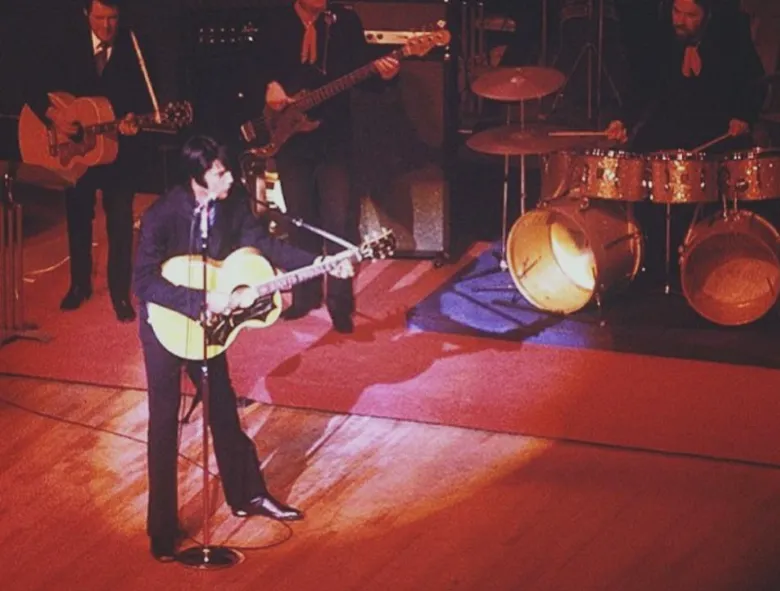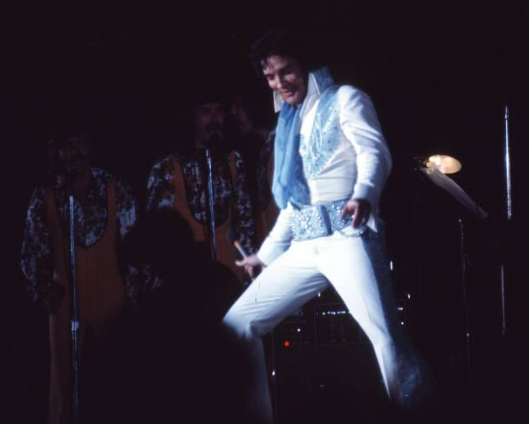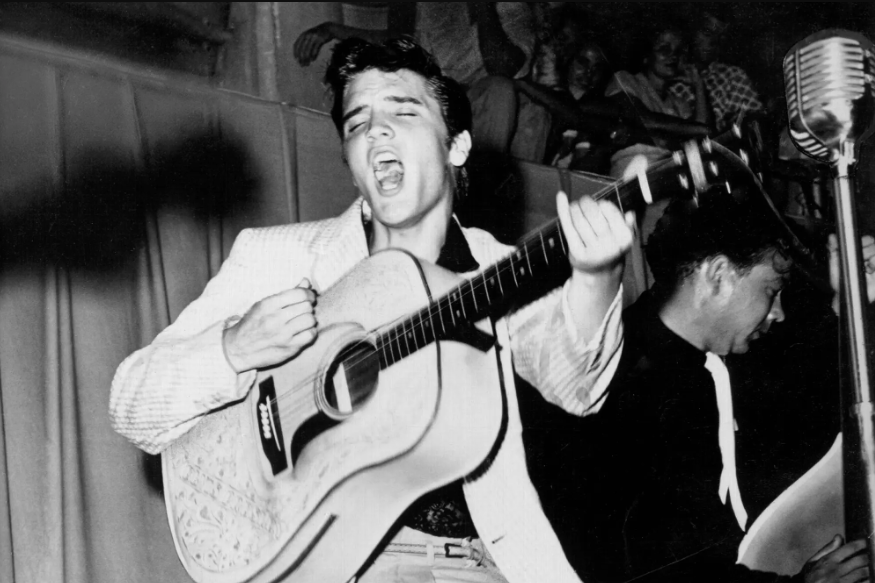Rock and Rebellion: The Enduring Legacy of Elvis Presley's 'Too Much Monkey Business'
(watch the video below)
"Too Much Monkey Business" is a seminal rock and roll song that epitomizes the rebellious spirit of the 1950s. Originally written and recorded by the legendary Chuck Berry in 1956, it was later covered by Elvis Presley, one of the most iconic figures in the history of popular music. Presley's rendition of "Too Much Monkey Business" not only showcases his remarkable vocal talent but also encapsulates the cultural and social dynamics of the time. In this comprehensive analysis, we will delve deep into the song's lyrics, music, historical context, and its enduring impact on the world of music and beyond.
"Too Much Monkey Business" was penned by Chuck Berry, who is often hailed as one of the pioneers of rock and roll music. The song was originally released in 1956 as a single and later appeared on Berry's debut album, "After School Session." It features Berry's signature blend of witty lyrics, catchy guitar riffs, and a driving rhythm that became characteristic of the rock and roll genre.
The composition revolves around a protagonist who laments the monotony and frustrations of everyday life, using the metaphor of "monkey business" to describe various societal grievances. From mundane tasks to societal pressures and hypocrisies, the song's lyrics resonate with the disillusionment felt by many young people in post-war America.

Elvis Presley, often referred to as the "King of Rock and Roll," recorded his version of "Too Much Monkey Business" during his legendary Sun Records sessions in the mid-1950s. While staying true to the original essence of the song, Presley injected his unique style and charisma into the rendition, adding a sense of urgency and vitality that set it apart.
Presley's vocal delivery is characterized by his trademark blend of smoothness and raw energy, perfectly complementing the song's themes of frustration and rebellion. Backed by a tight rhythm section and infectious guitar licks, his rendition of "Too Much Monkey Business" captures the essence of rock and roll in its purest form.
At its core, "Too Much Monkey Business" is a biting critique of the societal norms and expectations prevalent in 1950s America. The lyrics paint a vivid picture of a world filled with trivialities and absurdities, where the protagonist feels overwhelmed by the pressures of conformity and consumerism.
The song's opening lines set the tone for its themes:
"Runnin' to-and-fro, hard workin' at the mill
Never fail in the mail, yeah, come a rotten bill!"
Here, the protagonist expresses frustration with the monotony of daily life, symbolized by the grind of working at the mill and the never-ending stream of bills. Throughout the song, various vignettes portray the protagonist grappling with a range of issues, from bureaucratic red tape to societal expectations and the relentless pursuit of material wealth.

Lines such as "Pay phone, something's wrong, dime gone, will mail" and "Blonde hair, good-lookin', trying to get me hooked" highlight the absurdities and trivialities that the protagonist encounters, reflecting a sense of disillusionment with the world around him.
To fully appreciate the significance of "Too Much Monkey Business," it's essential to consider the cultural and historical context in which it emerged. The 1950s were a time of profound social change in America, characterized by the rise of consumer culture, the baby boom, and the dawn of the Cold War era.
Rock and roll music emerged as a powerful expression of youthful rebellion, challenging traditional norms and values with its infectious rhythms and rebellious lyrics. Artists like Chuck Berry and Elvis Presley became the voices of a generation, channeling the frustrations and aspirations of young people across the country.
"Too Much Monkey Business" resonated deeply with audiences of the time, striking a chord with its depiction of the anxieties and uncertainties of post-war America. Its themes of alienation, disillusionment, and the quest for authenticity reflected the experiences of many young people who found themselves at odds with the prevailing social order.
The legacy of "Too Much Monkey Business" extends far beyond its initial release in the 1950s. As one of the defining songs of the rock and roll era, it has exerted a lasting influence on generations of musicians and artists across various genres.

Elvis Presley's rendition of the song helped popularize it to a broader audience, introducing it to fans who might not have been familiar with Chuck Berry's original version. Presley's interpretation showcased his ability to infuse a song with his unique style while staying true to its roots, cementing his reputation as a trailblazer in the world of popular music.
Over the years, "Too Much Monkey Business" has been covered by numerous artists, further solidifying its status as a rock and roll classic. Its themes of rebellion and social critique continue to resonate with audiences, making it as relevant today as it was over half a century ago.
In conclusion, "Too Much Monkey Business" stands as a timeless testament to the enduring power of rock and roll music. With its catchy melody, incisive lyrics, and electrifying performances, it encapsulates the spirit of rebellion and defiance that defined the 1950s and continues to inspire listeners to this day.
Through the lens of Elvis Presley's interpretation, we gain insight into the cultural and social dynamics of post-war America, as well as the transformative impact of rock and roll on popular culture. As we reflect on the song's legacy, we are reminded of the enduring significance of music as a medium for expression, rebellion, and social change. "Too Much Monkey Business" remains a testament to the timeless power of music to transcend boundaries and capture the essence of the human experience.
Video
Lyrics
Let's sing along with the lyrics !
Salesman talking to me tried to run me up a creek
Says you can buy it, go on try it, you can pay me next week
Uh-uh, too much monkey business, too much monkey business
Too much monkey business for me to be involved in
Oh-ho-ho
Blonde haired, good lookin' tryin' to get me hooked
Wants me to marry, settle down and get a home and and write a book
Uh-uh, too much monkey business, too much monkey business
Too much monkey business for me to be involved in
Too much monkey business for me to be involved in
Oh-ho-ho
Pay phone, somethin' wrong, dime gone, will mail
Ought to sue the operator for tellin' me a tale
Uh-uh, too much monkey business, too much monkey business
Too much monkey business for me to be involved in
Oh-ho-ho
Oh-ho-ho, oh-ho-ho, oh-ho-ho, oh-ho-ho
Been to Vietnam, been a fightin' in the war
Army bar, army chow, army clothes, army car
Uh-uh, too much monkey business, too much monkey business
Too much monkey business for me to be involved in
Oh-ho-ho
Workin' in the fillin' station, too many tasks
Wipe the window, check the tires, check the oil, dollar gas
Uh-uh, too much monkey business, too much monkey business
Too much monkey business
Too much monkey business for me to be involved in
Oh-ho-ho
Blonde haired, good lookin' tryin' to get me hooked
Wants me to marry, get a home, settle down and and write a book
Uh-uh, too much monkey business, too much monkey business
Too much monkey business for me to be involved in
Oh-ho-ho
Too much monkey business, oh-ho-ho, too much monkey business, oh-ho-ho
Too much monkey business, oh-ho-ho, too much monkey business, oh-ho-ho



